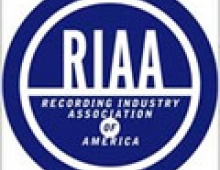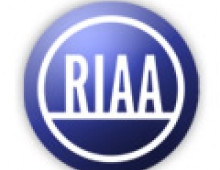
U.S. Judge orders record labels to turn over documents
A U.S. federal judge has ordered major record labels to turn over privileged documents after finding they may have used misleading information to convince the government to abandon a major antitrust probe.
The ruling late on Friday from U.S. District Judge Marilyn Hall Patel in San Francisco came out of a dispute over which documents Vivendi Universal's (EAUG.PA: Quote, Profile, Research) (V.N: Quote, Profile, Research) Universal Music Group and EMI Group Plc (EMI.L: Quote, Profile, Research) should be forced to release in a lengthy copyright battle over Bertelsmann's (BERT.UL: Quote, Profile, Research) investment in music-swapping service Napster.
Prosecutors in 2001 began investigating whether music labels secretly worked together to use two joint ventures, MusicNet and Pressplay, to discourage digital downloading and protect CD sales by fixing digital music distribution terms.
During the investigation, the joint ventures and their record label parents each submitted a "white paper" to the DOJ summarizing their arguments. They also provided documents that included redacted, or blacked out, sections to remove privileged material.
The U.S. Justice Department abandoned the probe in December 2003, citing no evidence of wrongdoing.
Napster investor Hummer Winblad Venture Partners, Bertelsmann's co-defendant in the lawsuit, charged that the arguments offered in the white papers were known to be false or misleading.
In the ruling, Patel said Hummer Winblad provided reasonable cause to believe that information in the white papers was "deliberately misleading."
Patel ordered UMG and EMI to turn over all previously held communications related to the antitrust investigation within 30 days of the order.
The parties could not immediately be reached for contact.
Prosecutors in 2001 began investigating whether music labels secretly worked together to use two joint ventures, MusicNet and Pressplay, to discourage digital downloading and protect CD sales by fixing digital music distribution terms.
During the investigation, the joint ventures and their record label parents each submitted a "white paper" to the DOJ summarizing their arguments. They also provided documents that included redacted, or blacked out, sections to remove privileged material.
The U.S. Justice Department abandoned the probe in December 2003, citing no evidence of wrongdoing.
Napster investor Hummer Winblad Venture Partners, Bertelsmann's co-defendant in the lawsuit, charged that the arguments offered in the white papers were known to be false or misleading.
In the ruling, Patel said Hummer Winblad provided reasonable cause to believe that information in the white papers was "deliberately misleading."
Patel ordered UMG and EMI to turn over all previously held communications related to the antitrust investigation within 30 days of the order.
The parties could not immediately be reached for contact.




















